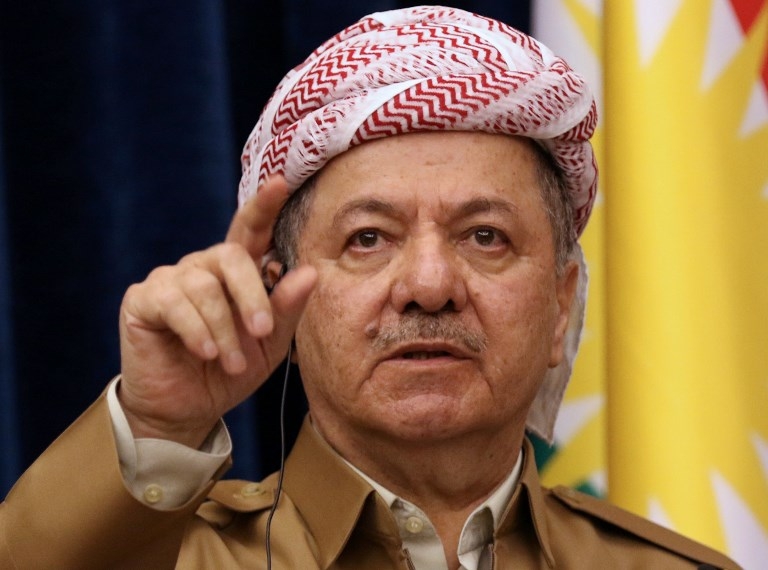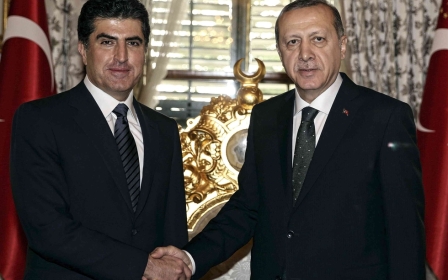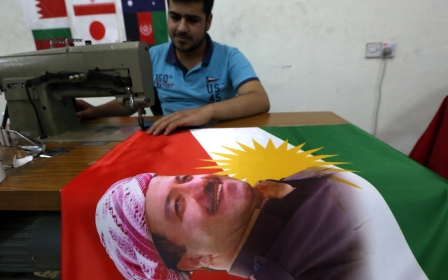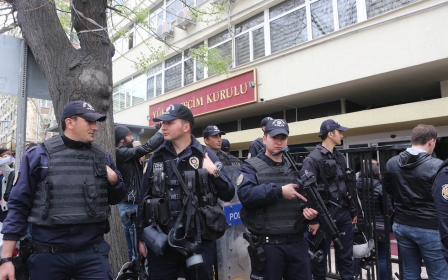Iraqi Kurds reject US call to postpone referendum

Iraqi Kurds have rejected a call by the US to postpone a referendum on the independence of their autonomous Kurdish region, planned for next month, according to a high-ranking Kurdish official.
During a phone call on Thursday, US Secretary of State Rex Tillerson had asked Massoud Barzani, president of Iraq's Kurdistan Regional Government (KRG), to postpone the poll over fears it would distract from the fight against the Islamic State group (IS).
But speaking to Reuters on Saturday, Hoshyar Zebari, a close adviser to Barzani, said "The date is standing, Sept 25, no change."
'The date is standing, Sept 25, no change'
Hoshyar Zebari, adviser to President Barzani
The US State Department said in June it was concerned that the referendum will distract from "more urgent priorities" such as the defeat of Islamic State militants. While saying it appreciated the "legitimate aspirations" of the people of Iraq Kurdistan, the State Department said it supported a "unified, federal, stable and democratic Iraq" and had voiced its concerns to Kurdish authorities.
"On the issue of the postponement of the referendum, the President [Barzani] stated that the people of the Kurdistan Region would expect guarantees and alternatives for their future," said the statement issued by the Kurdish presidency after Tillerson's call, giving no further details on the Kurdish leader's reaction to the US request.
Kurds 'committed' to fighting terrorism
Masrour Barzani, head of the Kurdish government's security council and son of President Barzani, sought to allay fears on Friday that the referendum, which is planned for 25 September, would distract from the fight against the Islamic State.
Seaking in Washington, Masrour Barzani said that the Kurdish government was committed to fighting "terrorism regardless of the political relationship with Baghdad".
"Those opponents who say this is not the right time, my question to them is when is the right time? ... When [IS] invaded parts of Iraq and attacked Kurdistan, once again we were told it's [a] time of war so it’s not the right time. Now that [IS] is on the verge of collapse we are again being told it is not the right time," he said.
The US and other Western powers are concerned that the vote could turn into another regional flashpoint. Turkey, Iran and Syria, which together with Iraq have sizeable Kurdish populations, all oppose an independent Kurdistan.
On Saturday, Kurdish officials told Reuters that that September date for the vote would be maintained.
Muqtada al-Sadr, the influential Iraqi Shiite cleric, said on Friday that he had urged Kurdish leaders to postpone the referendum.
"Kurds are part of Iraq, and we want them to stay that way, but some issues accumulated from Iraqi governments have led them to depart and reach a level to secede," Sadr told Arsaq al-Awsat.
'Kurds are part of Iraq and we want them to stay that way'
Muqtada al-Sadr
Kurds split over referendum
The referendum, which was called in June, is expected to pass, but there has been disagreement among the Kurds over what territory states will be included in a future Kurdish state.
Sinjar has seen repeated clashes between forces loyal to the KRG and forces linked to the Kurdistan Workers' Party (PKK) who oppose the KRG system of government.
The Gorran movement, an Iraqi Kurdish opposition party with 20 out of 111 seats in the KRG, has said the poll amounts to a power grab by Barzani and would be "illegal" if it goes ahead without the support of other parties.
The Kurds have been seeking an independent state since at least the end of the First World War, when colonial powers divided up the Middle East, but their territory ended up split between modern-day Iraq, Syria, Turkey and Iran.
New MEE newsletter: Jerusalem Dispatch
Sign up to get the latest insights and analysis on Israel-Palestine, alongside Turkey Unpacked and other MEE newsletters
Middle East Eye delivers independent and unrivalled coverage and analysis of the Middle East, North Africa and beyond. To learn more about republishing this content and the associated fees, please fill out this form. More about MEE can be found here.




